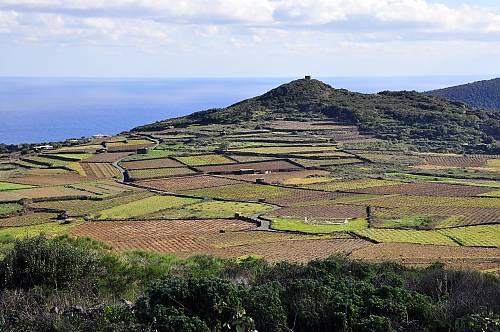Most people know the story of Adam and Eve and the apple in the mythical Garden of Eden. But not as many know that the olive has a history almost as old as civilization. Carbon-dating has shown that a Spanish olive seed is 8,000 years old.
It is said that Noah’s Ark brought back an olive branch from Mount Arafat; that Athens got its name from Athena, who won a contest among the gods for the honour of naming the city by striking the ground and bringing forth the olive tree; and that a sacred olive tree was planted at the Acropolis to honour the occasion.
Ancient Greeks used olive oil in salads and also anointed their bodies with the oil. It was also the basis for almost all Greek cuisine.
According to former ambassador Eleftherios Anghelopoulos, who retired from his posting in Ottawa in May 2014, there is evidence the olive tree was first cultivated in Neolithic Crete. The huge storage jars used back then may still be seen at Knossos. An olive grower himself, Anghelopoulos said during a talk at this year’s Ottawa Travel and Vacation Show that Greeks attribute longevity not only to olive oil but to moderation in everything they do.
Anghelopoulos suggests looking for olive oil in a dark glass bottle with an expiry date. It should be extra virgin, possibly like celebrity chef Christine Cushings’s “Bold” which is made from Kalamata olives by cold extraction. This choice is perfect for salads.
Following are some recipes using olive oil.
Beef Omelette
Serves 6
6 eggs
5 ml (1 tsp) salt
1 ml (1/4 tsp) black pepper
250 g (1/2 lb) ground beef
125 ml (1/2 cup) chopped parsley
250 ml (1 cup) olive oil
Beat eggs, salt and pepper. Stir in beef and parsley. Heat oil in skillet until it boils. Drop the mixture in by tablespoon. Fry until browned on all sides.
Broccoli in Olive Oil
Serves 4 to 6
500 ml (2 cups) broccoli florets
125 ml (1/2 cup) olive oil
2 to 3 cloves garlic, minced
Salt and pepper to taste
50 ml (1/4 cup) chopped Kalamata olives (optional)
Parboil the broccoli and drain well. Saute the broccoli in olive oil with the garlic.
Season with salt and pepper and add the olives.
Kourabiedes
Approximately 40 cookies
500 ml (2 cups) soft butter
125 ml (1/2 cup) sugar
1 egg yolk
50 ml (2 tbsp) cognac
5 ml (1 tsp) vanilla
500 g (4 cups) flour, sifted
10 ml (2 tsp) baking powder
2 ml (1/2 tsp) cloves
Pinch salt
125 ml (1/2 cup) blanched almonds, toasted and chopped
Confectioners` sugar
Cream butter and sugar until fluffy. Beat in egg yolk and continue beating until mixture is a lemon colour. Add cognac (or brandy) and vanilla. Resift flour, baking powder, cloves and salt. Work in the flour mixture and almonds. Knead well. Dough will be stiff. Chill for 30 minutes. Roll into a long log, 1 cm (1/2-inch) thick. Cut into 5 cm (2-inch) pieces. Put on buttered cookie sheets and shape into crescents. Bake in preheated 180º C (350º F) oven for 20 to 25 minutes or until barely golden. Cool and dust with confectioners` sugar.
Ancient Greek recipes may be found at www.olivetomato.com/3-easy-ancient-greek-recipes-you-can-make-today.
Susan Hallett is an award-winning writer and editor who has written for The Beaver, The Globe & Mail, Wine Tidings, and Doctor’s Review, among others. She is currently the European editor of Taste & Travel International. Email: [email protected]





